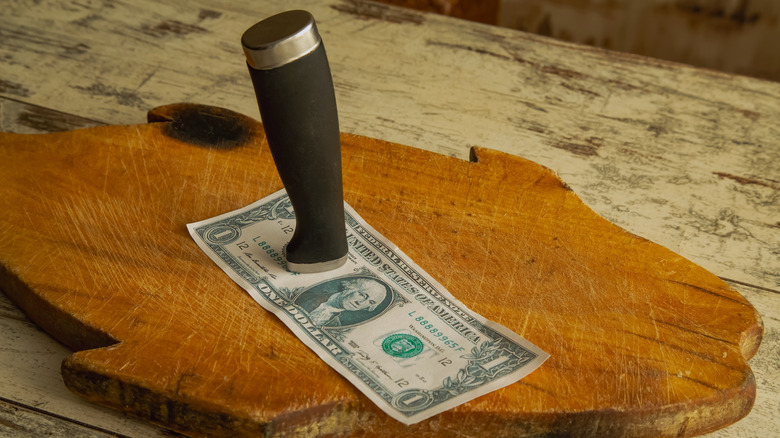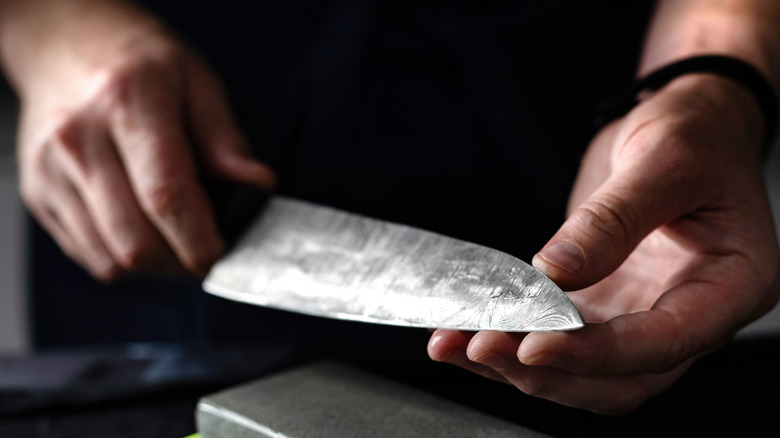Are Cheap Kitchen Knives Worth The Lower Price Tag?
If you're in the market for some kitchen knives, you may be wondering if the more expensive knives are actually worth it. While cheap ones may be initially easier on your wallet, they may not necessarily be ideal for long-term use. When looking at the differences between cheap and high-quality knives, Aaron Zahl, chef and creator of Vegan Japanese, said that it mainly comes down to both the materials used as well as the craftsmanship. "High-end knives use harder, higher-carbon steel that holds a sharper edge for longer, while budget knives tend to dull [quickly], and require more frequent honing," Zahl said. Additionally, cheaper knives can be less comfortable in your hand, so if you're doing a lot of cooking, your grip may start to hurt after a while. "Premium knives are designed so the handle and blade feel like one cohesive piece, reducing fatigue during long prep sessions."
Additionally, you may be wondering if grabbing a knife set will save you money in the long run. While they may appear to be more cost-effective in that you're getting an entire block of knives, you're also getting a bunch of filler knives that you likely won't use. Instead, you can focus on buying three essential knives for your kitchen: a chef's knife, a serrated knife, and a paring knife. Over time, you may even build up to owning a bunch of good-quality kitchen knives, and then you can display them like Julia Child for ease of use.
How to shop for affordable kitchen knives
When heading out to shop for your next kitchen knife, it's a good idea to go in with a plan — and even more brands you want to look out for. "For home cooks, brands like Katto, Tojiro, Mercer[,] and Japanese Knife Co offer excellent value," Aaron Zahl said. Regarding material, he suggested knives that are made of either stainless steel or VG10 composite because they offer sharpness and strength yet remain affordable. Now, if you want to be like Julia Child, you could instead opt for a carbon steel knife, which is known for being — and staying — incredibly sharp for longer than other materials. They're also often less expensive than stainless steel, so you can save even more money. "With care, regular honing and proper storage, even these mid-range knives can last years," Zahl said.
When shopping for kitchen knives, Zahl recommended looking for ones that offer a full tang, meaning that the metal of the blade extends throughout the entire length of the knife's handle, whereas a partial tang extends into only some of the handle, which can cause weak spots and broken handles. In addition to a full tang blade, he suggested looking for a knife with a non-slip, comfortable grip. "The knife should feel balanced when you hold it by the bolster, not blade-heavy or handle-heavy," he mentioned.


